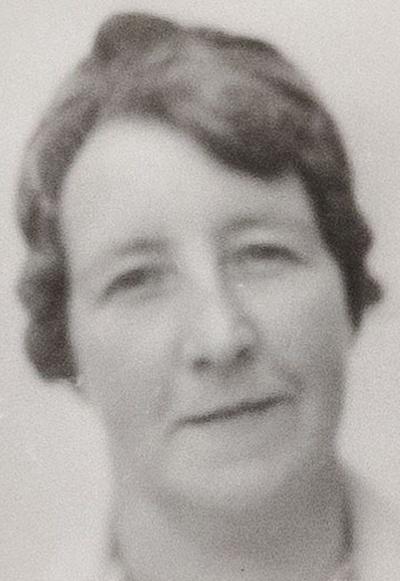Mrs Kibble hides from the Germans
18th September 2025
'45-year old woman outwitted Gestapo. Hid at Petit Bôt for 13 weeks. How a Guernsey resident, a 45-years old Lancashire woman, was able to outwit the Geheimfeldpolizei, the German Secret Police, and remain in hiding for over 3 months - 13 weeks - then to be liberated when British troops arrived here, can now be revealed by The Star.'
Having escaped from the horror of imprisonment by the Nazis, Mrs Emily Kibble, formerly of La Planque, Castel, and more recently of Mount Durand, St Peter Port, is able to tell how she and her litle dog 'Queenie' evaded capture with the help of another Guernsey resident. An ingenious suicide plan was the method she adopted to save herself from German clutches.
Said Mrs Kibble: 'I came her on April 1, 1938, from Lancashire, where I was born of Irish parents. My husband and I lived at La Planque, Castel.
On June 30, 1944, German Police, through an anonymous letter, searched our house. They found a radio and sentenced my husband to 9 months' imprisonment.
He was due to be released in December 1944, but two days before broke into a German store at Granville House, Mount Durand, taking about 400 tins of foodstuffs. Unfortunately he was caught and was again sentenced by the German court, this time to two years' imprisonment.
TOOK EVERYTHING
The Feldgendarmerie came immediately and searched the house and took all I had in the way of food: beans, flour, and other odds and ends. They sentenced me to three months for receiving stolen goods, and told me to be ready at the prison by 5 p.m. on February 12th last.
Quickly I thought out a plan by which I could defy the Gestapo. With the only friend I had, Mr René Bessin, of Petit Bôt, we hit on an idea. But it needed more time. So I asked the Germans for a week's reprive before going to prison; it was granted. Meanwhile I disposed of everything I had: furniture, clothes and household goods, for we were to attempt a suicide ruse.
SUICIDE PLAN
On February 19th I was due to go to prison. Instead I went to Southview Hotel, the Bessins' home at Petit Bôt. That same evening, Mr Bessin took the clothes I had been wearing and left them on the rock near a German guard, between Albecq and Cobo. I hoped when my garments were found that people would believe I had drowned.
The next morning the whole Island was bluffed by the suicide decoy, while I was comfortably hidden away at Petit Bôt! I shared Mr Bessin's rations, and we divided 5 lbs. of bread a week and a Red Cross parcel each month.
Mrs Kibble, confined to the house, could take little exercise. She did occasionally go for air into the backyard. She relates how, on Friday, May 4, she had a narrow escape from being caught.
That day, she said, a Guernsey girl who had previously worked in the hotel informed the Germans that she thought she knew of my whereabouts and theat i was 'wanted' by the Gestapo.
ARE YOU BRITISH?
The hotel was searched by a Guernsey policeman. Mr Bessin asked him if he had a warrant.
The man replied, 'No, but I know you are hiding the woman.'
'Are you British?' asked Mr Bessin.
'Yes,' answered the man.
'Then act like one' Mr Bessin said, 'or get out!'
Mrs Kibble came out of hiding when the great day of Liberation dawned - a week ago today. She pays tribute ot the spirit of Mr René Bessin who, in order to keep her fed during her hide-out, sold a field of hay to give her two pints of milk a day.
Mr Bessin, too, suffered at German hands. He was a Brigadier Chef in the French Army and, on discharge, returned to Guernsey in the early days of the Occupation. Through another anonymous letter he was sentenced by the Germans to nine months in a prison camp in France. There he had a rough time. 'Queenie,' Mrs Kibble's Sealyham, has been with her for the whole 13 weeks of her hiding. Not that it disturbed Queenie; she gave birth to a litter of eight pups during her enforced seclusion.
Mr Kibble is now belived to be in Alderney, where he was removed earlier by the Germans.
Eric Charles Kibble - Frank Falla Archive
Réné Roger Bessin - Frank Falla Archive
